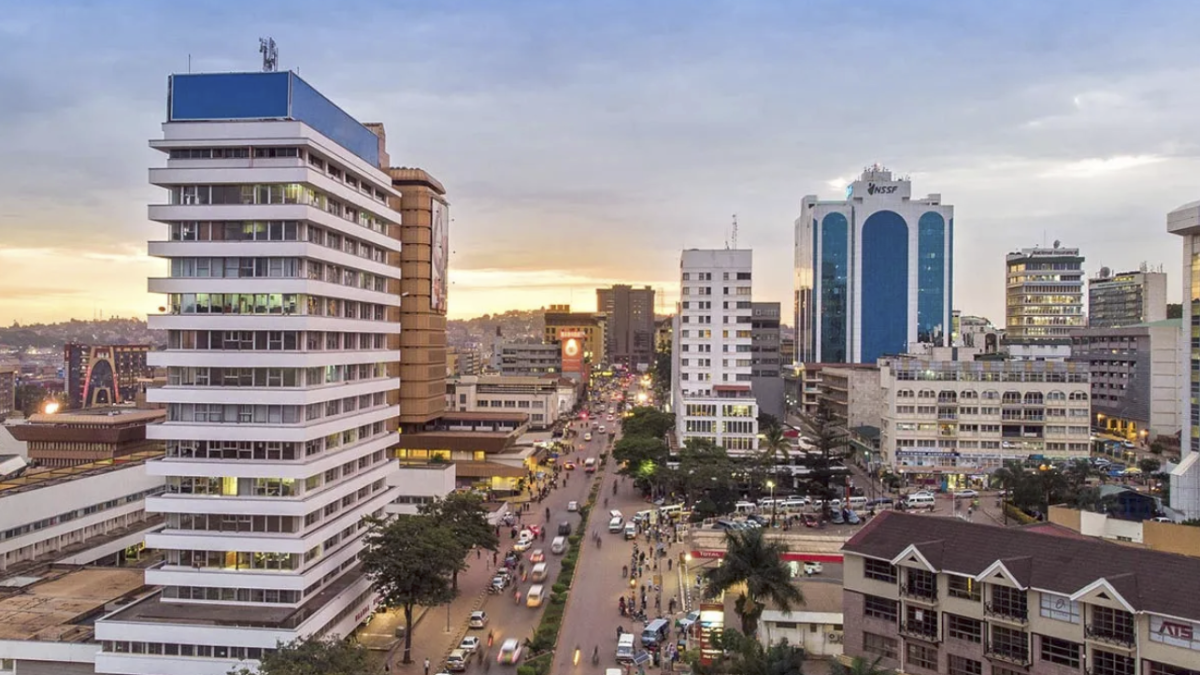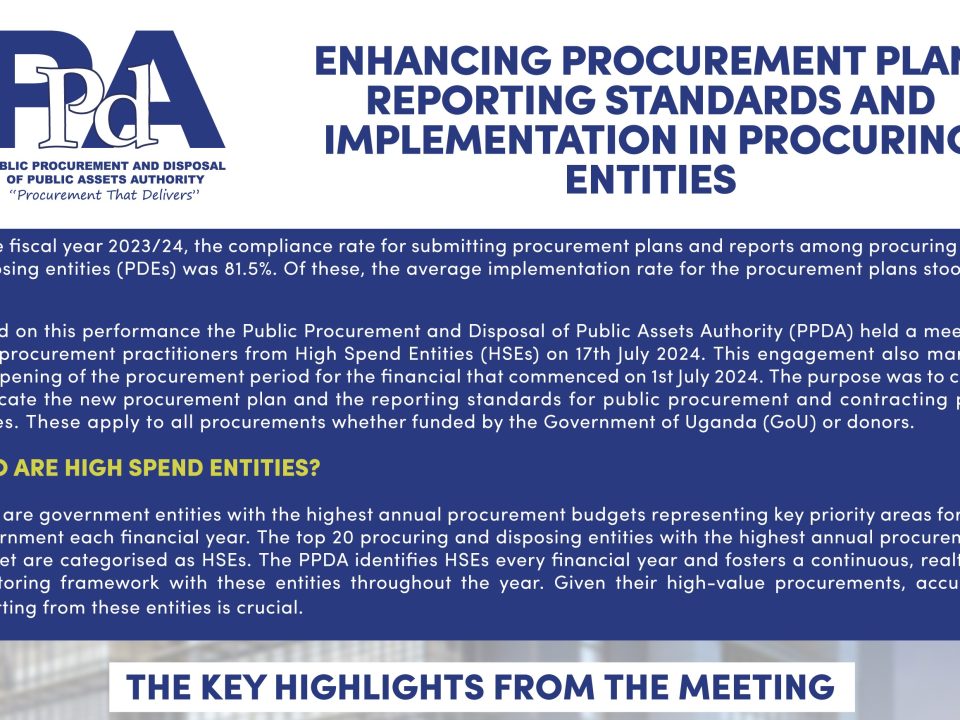WHAT THE 2023 PPDA REGULATIONS SIGNIFY FOR BUSINESSES AND FOR THE COUNTRY

PPDA Hosts 3rd Virtual National Students Anti-Corruption Challenge Awards Ceremony
June 12, 2024
Enhancing Procurment Plan_Reporting Standard and Implementing Procuring Entities
July 26, 2024WHAT THE 2023 PPDA REGULATIONS SIGNIFY FOR BUSINESSES AND THE COUNTRY.
By Benson Turamye
In 2003, the government enacted the PPDA Act as the principal law for guiding and regulating public procurement and public assets disposal in Uganda.
The Act came into force on 21st February, 2003 and has since been amended twice in 2011 and 2021. In addition to new provisions in the Act, the amendments also necessitated the revision of the PPDA Regulations that had been issued in 2014 for central government agencies, and 2006 for local governments.
The PPDA Regulations are issued in line with Section 96 of the PPDA Act. Under the Act, the Minister of Finance, on the recommendation of the PPDA, issues regulations to guide government agencies and bidders on the most appropriate procedures for carrying out public procurement and public assets disposal in government.
It is against this background that, after the requisite consultations, new regulations were developed and gazetted on 8th December 2023, and became applicable across all government agencies effective 5th February 2024.
One of the outstanding developments in the regulations is promoting the use of procurement as a social- economic tool, and to practice sustainable procurement. The requirement now is that all public procurement and disposal activities must be subjected to scrutiny for Environmental, Social and Health Safeguards (ESHS).
Although the PPDA had earlier in 2019, revised the Standard Bidding Document for the procurement of works that incorporates ESHS for the procurement of infrastructure projects, it was not until the recent developments that ESHS was given due prominence. With the new Regulations, the bidding documents now provide for measures to mitigate the impact on habitats, land use and natural resources of the localities where the projects are being undertaken. Government agencies and contractors are also expected to manage waste disposal. This is addition to social safeguards within a society where projects are undertaken. For instance, owing to labour influx, there may be spread of communicable diseases, sexual harassment and exploitation, gender-based violence, and crime. These ills are prevalent in areas where mega projects, say road construction, or power dams are undertaken. Going forward, contractors are supposed to put in place mechanisms to ensure that in the execution of works or delivery of goods and services, there are mechanisms for prevention of the aforementioned ills and there are response action plans, if, and when they occur.
The regulations were also developed and issued to create efficiency in the procurement process through the reduction of procurement lead times. Accordingly, the regulations provide for reduction in the minimum bidding periods and bid evaluation periods. We encourage the business community to acquaint themselves with these new provisions available on the PPDA website
Another area that will help government agencies with unique requirements is the stipulation for circumstances under which an entity can pay 100% advance payment before performance of contract or delivery of supplies. This will however be upon approval by Attorney General and authorisation by the Permanent Secretary/Secretary to Treasury, Ministry of Finance. Previously, government agencies have had challenges with procurements where the provider is not willing to deliver unless they have been given 100% advance payment.
The PPDA Act was also amended to reduce the complaints review mechanism. Previously, an aggrieved bidder in a procurement process would initially petition the accounting officer of the agency undertaking the procurement process. If, following the petition, the bidder was dissatisfied with the decision of the accounting officer, they would appeal to the PPDA. And if the bidder was, yet again, not satisfied with the decision of the PPDA, they would escalate the complaint to the PPDA Appeals Tribunal. These reviews would, unfortunately, translate into delays and thereby impacting service delivery by government. Now, following the amendment of the Act, an aggrieved bidder will petition the Accounting Officer and any appeal will just be to the PPDA Appeals Tribunal. In other words, the PPDA will no longer be involved in the administrative review process. Additionally, a procurement and disposal process suspended during this process, will resume immediately after the PPDA Appeals Tribunal has made a decision. What this means is that the procurement process and service delivery will not be bogged down by further appeals to the High Court. Yes, the complainant may proceed to petition the High Court, but in the event that they win the case, they will be compensated.
Another important provision emerging from the regulations is that Government agencies will now be allowed to source for equipment directly from manufacturers. According to the Regulations, there are specified supplies which shall only be procured from the manufacturer or the authorised agents of the manufacturer. These supplies are Aviation equipment, Medical equipment plus Agricultural and industrial equipment. This will reduce middlemen in the procurement of these vital supplies. Middlemen would, quite often, unduly inflate prices.
There are other provisions, which owing to space constraints, we may not adequately elucidate here. However, what is important to note is that the procurement landscape has never been better. The coming into force of the PPDA Regulations 2023 will now simplify procurement and reduce the cost of doing business without compromising quality.
This article was originally published in the New Vision Newspaper on Monday, June 3rd 2024.
Ends




